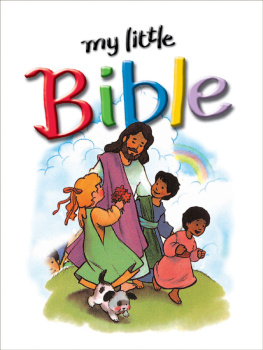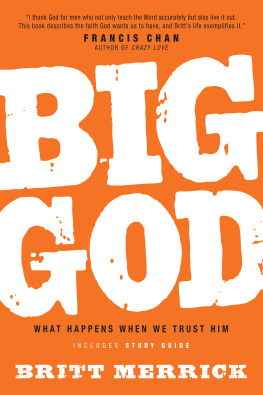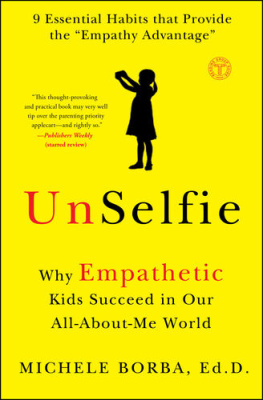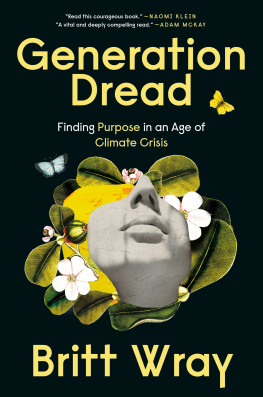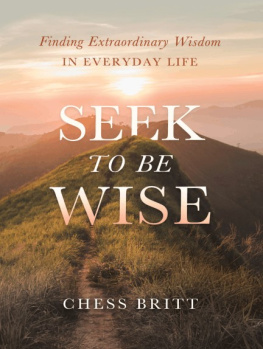Copyright 2012 by Donna Britt
Cover design by Allison J. Warner. Copyright 2012 by Hachette Book Group, Inc.
All rights reserved. In accordance with the U.S. Copyright Act of 1976, the scanning, uploading, and electronic sharing of any part of this book without the permission of the publisher is unlawful piracy and theft of the authors intellectual property. If you would like to use material from the book (other than for review purposes), prior written permission must be obtained by contacting the publisher at permissions@hbgusa.com. Thank you for your support of the authors rights.
Little, Brown and Company
Hachette Book Group
237 Park Avenue, New York, NY 10017
www.hachettebookgroup.com
www.twitter.com/littlebrown
First e-book edition: December 2011
All photographs are from the authors personal collection.
The publisher is not responsible for websites (or their content) that are not owned by the publisher.
The Hachette Speakers Bureau provides a wide range of authors for speaking events. To find out more, go to www.hachettespeakersbureau.com or call (866) 376-6591.
Portions of the chapter Ghosts have appeared in the Washington Post in slightly different form.
ISBN 978-0-316-19319-1
E2-20181211-JV-PC-VAL
This book is dedicated to my brother Darrell, for making me laugh, loving me unconditionally, and making me want to be a better person.
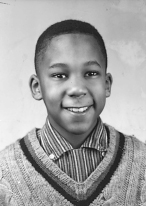
T he moment I saw him, I wanted him.
Lithe, black, and muscular, he was the handsomest fellow in the room. We hadnt been introduced, but he walked right up to me and looked me in the eyeso boldly you would have thought he was alone rather than accompanied by a clearly enthralled companion. He wanted me, too.
Then his companion nudged him. Turning, he strolled away, not bothering to look back. His cockiness reminded me of a saying: All men are dogs.
If this one hadnt been an actual cocker spaniel, I might have been crushed.
It started a few weeks earlier, when it became painfully obvious that our fourteen-year-old American Eskimo was dying. Particularly stricken was my youngest son, Skye, ten. Recalling the loss of my own childhood peta squat cocker beagle named TaffyI contacted a local cocker spaniel rescue and learned that adoptable dogs were being shown that weekend at a nearby pet store.
Entering the shop, Skye and I instantly spotted Woofer, whose black fur shone like just-poured tar and who made a tail-wagging beeline for us. But an elderly man had him firmly leashed; clearly he meant to adopt him. So Skye and I checked out several females, among them Millie, a blond nine-year-old as blas as an aging movie star, and Penny, a jet-colored cocker, who, like many black females, stood to lose a few pounds. But our eyes kept returning to Woofer. If the adoption doesnt work out, I told staffers, let us know.
Woofers unavailability, I decided, was a sign: I didnt need another black maleeven a four-legged onein my life. Finally, fate had said, Enough.
Id grown up as the only daughter of a father whose specialties were bricklaying and simmering silences; Id spent years commiserating and exchanging barbs with my three brothers. At eighteen, I left for college, where lunchtime at my historically black university found me the lone female at a table full of secret-sharing guys who reveled in the encouragement, neck rubs, and advice I was only too accustomed to offering. After years of dating, I went on to marrytwiceand looked to motherhood to redress my lifelong gender imbalance. Destined for daughters, I gave birth to three sons. If that werent enough, my second husband and I for years opened our home to the troubled male friend of one of our boys.
Even our soon-to-be euthanized dog was an alpha male.
For decades, Id been surrounded by men. Unable to recall a time when I wasnt outnumbered, outgunned, and certainly outmanned, I craved female energy, if only from a pet. I needed a bitch.
Guess what I got.
Woofers would-be master took the pooch home, where his pet cat hissed and spat its disapproval. Another unjustly persecuted black male, Woofer became ours, the latest penis-bearer in a house overrun with them.
Hilarious.
Know whats really funny? I should have been as wary of Wooferanother male demanding my time and energyas that snooty cat had been. Yet I adored him, just like all the others.
Why wouldnt I? The Divine Prankster who plopped me down at birth in Blackmanland had invested me with a compulsive desire to help anyone in need within a ten-foot radius, and an unquestioned, though hardly unquestioning, love of brothers: Brothers in the familial sense, as in my siblings. Brothers in the cultural sense, as in my African-American male friends, kin, lovers, and guys Ive never met. Brothers as in a lifetimes worth of men and boys whose desires and demands often eclipsed whatever I wanted.
Im hardly unusual in offering the men in my life whatever they need. Women are the worlds most reliable, and underappreciated, givers. Anne Morrow Lindbergh, wife of aviator Charles Lindbergh and a mother of five, wrote achingly about the tendency more than a half century ago in her brilliant 1955 classic, Gift from the Sea: All her instinct as a womanthe eternal nourisher of children, of men, of societydemands that she give. Her time, her energy, her creativeness drain out into these channels if there is any chance, any leak. Traditionally we are taught, and instinctively we long, to give where it is neededand immediately.
Yes, some men are geniuses at generosity. Just as surely, some women are stingy and unaccommodating. But women are much more likely to deplete themselves by noticingand then offeringwhats needed by those whom they love. Long ago, I decided that the desiremake that the needto nurture is as much a part of womens essential makeup as our DNA, as the uterus, ovaries, and other uniquely female organs that allow us, not men, to give birth.
Why wouldnt a brilliant God provide us with this survival insurance? Though men, too, give hugely to their children, sad statistics prove how much more often they turn away from giving.
No wonder my black male cocker became a metaphor for black men to whom Id given. Instantly drawn to Woofer, I wasnt supposed to have himyet he can daily be found begging for belly rubs and demanding a portion of whatever Im eating.
The inevitable way Woofer came to meand that I didnt run screaming when I learned he was availablesymbolizes the countless times Ive longed to flee black men but never could.
Over the years, Ive fantasized about escaping: from black mens chilling complexity, from the gripping grace that ever pulls me in. Frustrated by brothers troubled relationship with a world enamored of and repelled by them, Ive responded by fiercely defending them, while occasionally agreeing with societys harshest judgments. Over and over, some black mans behaviorpublic or private, that of an intimate or an imperfect strangerhas made me want to scream. Hide. Conjure some way to make him, no, every freaking one of them, disappear long enough for me to catch my breath.
And still they can saunter right up to me, corral my heart.
White womenand brown and yellow and red ones, tooalso give abundantly to men who may not appreciate it or even notice. Nobody makes us bestow so much upon the men in our lives, but we do iteven as we kick ourselves for it, even as we kick them for it, responding to a need greater than we or the men whom we both nurture and push away can articulate.
In one way, its worse for black women. In a nation in which black men die younger and more often than any other group of men, black women fear for the brothers in their lives, and for themselves at the prospect of losing them. Our fear is often as unthinking as our love. But certain terrors are earned the hard way.


![Fredrik Backman - Britt-Marie Was Here [Britt-Marie var här]](/uploads/posts/book/802028/thumbs/fredrik-backman-britt-marie-was-here-britt-marie.jpg)
